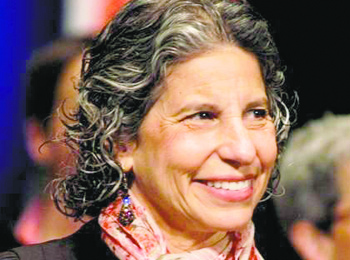I’m saying Kaddish again, and this time it’s harder!
I thought it would be easier the second time around but I was wrong. This time, I am acknowledging being an orphan. Ordinarily, facing the death of an aged parent is not traumatic. In fact, we were all waiting for Mom to die – even Mom. So no tragedy here, yet facing the absence of the parental generation is unexpectedly difficult. There is no one left on either side of my family – no buffer generation between me and my own mortality. I am next. It’s all normal, yet disconcerting.
As I say Kaddish, I wonder at the passage not just of time, but of generations. My parents were immigrants. Now my children and grandchildren have no concrete connection to the glory and suffering of the European Diaspora. I’m now the representative of Jewish tradition and heritage. As I say my daily Kaddish, I get to contemplate my own mortality and my new position of heritage connector.
I feel alone and unequal to the task. I want to ask my parents many questions, seek their guidance, but they’re not here. Relief, regret and fear equally emerge during prayers.
Clearly, facing the death of a loved and cherished parent is supposed to be difficult and demanding. But there’s another factor related to my struggle.
I have lost patience with male desire to keep me invisible. The absence of any true responsiveness to my Kaddish is almost unbearable. The whole purpose of saying Kaddish is to be in a community, with a minyan representing that community so that they may answer your words and respond to your call sanctifying God’s name and presence.
Rabbi Joseph B. Soloveitchik once wrote: “The Kaddish marks the beginning of a new phase of courageous and heroic mourning with a message of divine salvation… Through the Kaddish, we hurl defiance at death and its fiendish conspiracy against man.” Accordingly, the prayer declares, “No matter how powerful death is, notwithstanding the ugly end of man… no matter how black one’s despair is… we declare and profess publicly and solemnly that we are not giving up, that we are not surrendering, that we will carry on the work of our ancestors.”
In saying Kaddish, I declare that I am part of that process.
Thus gender erasure is unacceptable. I’m no longer able to ignore their attempt to expunge me from the community. And it happens ubiquitously in the Orthodox world, and sometimes in the Conservative one as well. Even in the places that self-identify as women-friendly, there is a tangible discomfort with women’s Kaddish. I’ve experienced this in New York, Israel, Florida and Montreal. In Florida, they asked me to lower my voice and say it silently! Do they understand how absurd that is?
At this point, many of you will want to shake me and say, “Look how far we have come!” Surely I know of all the advances both within the Orthodox world and in the other denominations. I know and teach about our current successes. We’re the most Jewishly educated generation ever, and that includes our women. There are new rituals centred on women, and new positions of authority that recognize women’s advanced leadership potential. I know all that.
Yet we’re constantly being deprived full accommodation. Even in the most liberal of our sectors, women still are not at the top, are not paid equally, and are still harassed or complimented on how good they look rather than on how smart they are. Little girls still want to dress up as Esther, not because she was the heroine who risked her life and taught us about communal bonds, but because she won the beauty contest.
I understand there are women in the haredi world who dress “to the nines.” They are combating invisibility. How do I do that in my synagogue, in a male world?
My Kaddish is as important and sanctioned as anyone else’s. Yes, there was a controversy about women saying Kaddish. But so many contemporary halachists have approved this practice. We should have no tolerance for male unresponsiveness or opposition. I want to say Kaddish as a Jew for the neshamah of my dear departed mother. And I expect the congregation, male and female to respond. The tradition that I now represent mandates it.
